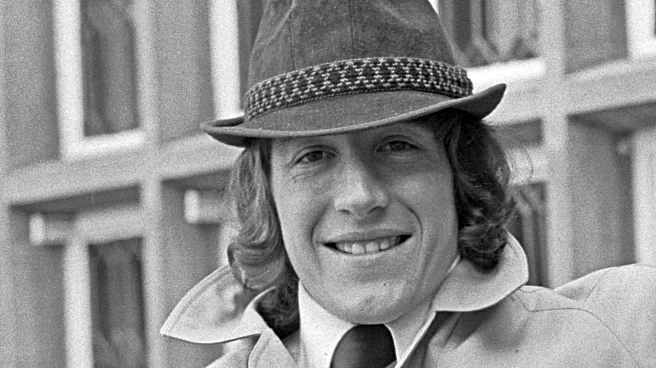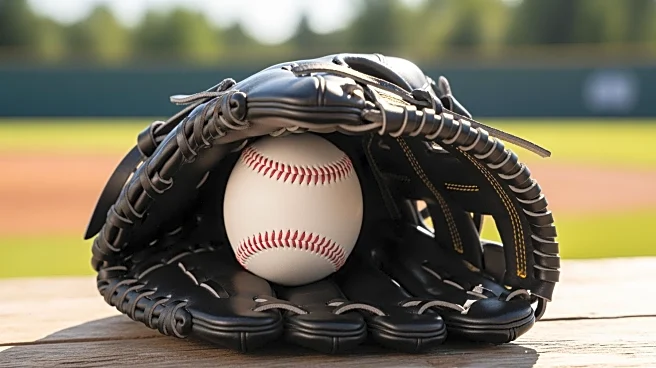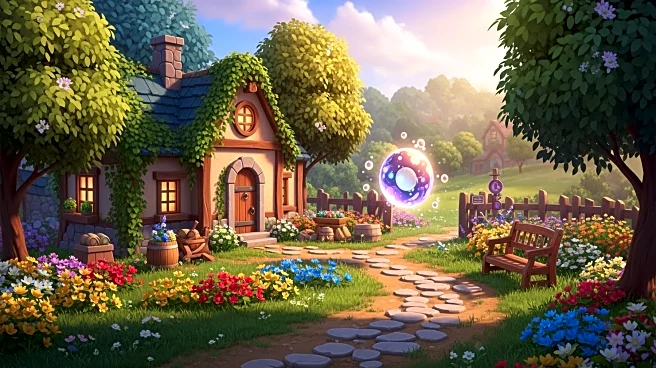Bob Stokoe’s Sunderland were one helluva cup team in 1973. They came to this third game against Derby unbeaten in fourteen ties. Liverpool at home was the reward for the victors, and Stokoe’s cup fighters
fancied a bit of that, especially as it would be the unofficial Charity Shield match, with the cup winners playing the league winners from 1972/73.
Stokoe was not disguising his concerns about fixture pile-up as Sunderland were competing on three intense fronts, trying to balance a Division Two promotion drive, European Cup Winners’ Cup, and League Cup campaigns, with a relatively small squad augmented by young, fairly inexperienced players.
The first tie at the Baseball Ground had seen Brian Clough’s Derby apparently coasting with two first-half goals without reply into the next round. The eleven minutes played with ten men just before half-time had crucially seen Roger Davies add to David Nish’s twenty-first-minute goal. In the last twenty minutes, the Lads had turned it around with two goals from young John Lathan to take the tie back to Roker Park.
The replay on the 29th of October, just two nights before, had seen almost thirty-nine thousand fans pack Roker Park for a raucous night under the lights. Despite missing a Tueart penalty on twenty minutes, Sunderland surged ahead with a rip-roaring performance and a good Tueart goal as he made amends on thirty minutes. The Derby big guns were struggling to contain Stokoe’s cavaliers and looked to be going out when Dave Mackay introduced substitute and ex-Sunderland player John O’Hare to the contest. He cleverly set up Archie Gemmill for an eighty-minute equaliser. The tie went to extra time but could not be decided. A toss of a coin meant a further replay at Roker Park on Halloween.

Despite the upheaval caused by the departure of the legendary Brian Clough and the appointment of Dave Mackay (a playing legend in his own right) on the 23rd October, Derby were a very top team in the top tier of English football. Their squad was packed with household names, internationalists, and league winners. Roy McFarland, John McGovern, Archie Gemmill, Alan Hinton, Kevin Hector, Roger Davies, and Henry Newton were formidable opponents. Adding extra spice was ex-Sunderland players Colin Todd and John O’Hare, both lured away as fine young players with massive potential by Clough, who had coached them at youth team level.
Derby had won the title in 1971/72 and would win it again the season after this one, 1974/75 (they would finish third in 1973/74).
Before the game, new manager Dave Mackay told John Donoghue of the Newcastle Journal, “You have to respect a side like this. We have what I feel is one of the most skilful outfits in the whole country, but such is Sunderland’s determination, they are not giving us the chance to play. While this is causing us problems, I still can’t help admire it. They have given us a heck of a battle so far, and I can’t see it getting any easier. I would fancy us more if this game was at the Baseball Ground; on the other hand, you cannot fail to be lifted by the atmosphere that the crowd generates. You can feel it sitting in the stands.”
Mackay went with the same starting eleven as the previous game and kept John O’Hare on the bench.
Bob Stokoe had doubts around Bobby Kerr’s fitness and told the press, “He walked around whilst the lads trained, and he felt a bit better; he wants to play. He has had X-rays and blood tests. He has been feeling out of sorts for weeks; it amazes me he has been able to carry on playing, but his spirit typifies this club. He just won’t give in, and neither will we.”

Bobby Kerr had played all but one of every league and cup game up to that point in the season!
Stokoe confirmed that Ron Guthrie would not be fit, and eighteen-year-old Joe Bolton would once again play left-back.
There was another near thirty-nine thousand crowd crammed into Roker Park at kick-off time. I was keenly anticipating the battle of the centre-halves. Roy McFarland and Colin Todd were established England internationals, and the inspirational Dave Watson was the man in form and in-waiting (he would eventually get his debut in Alf Ramsey’s last game as England manager on April 3rd 1974; he and Colin Todd were the central defensive pairing).
The game kicked off with a fantastic noise being created in the ground (as if to serenade Dave Mackay). What ensued was a rip-snorter of a first half, with Sunderland right at it from the off. Colin Todd was superb for Derby and had to be!
Within twenty minutes, Colin Boulton in the Derby goal had made two world-class saves from a Tueart pile-driver and a cracking Joe Bolton header that looked in all the way.
The Rams almost caught us on the break when Kevin Hector broke clear, but Monty raced out and blocked his shot and then unbelievably followed through to save from John McGovern. It is not a cup tie till Monty has pulled off a worldie’.
Just before half-time, McFarland put in a goal-saving tackle on Vic Halom, and Archie Gemmill cleared a towering Watson header off the line. The pressure on the Derby goal was immense, and it felt like a goal was coming.

The half-time whistle prompted me to give vent to my mates that it had come just at the wrong time for us!
I should not have worried; the second half was but two minutes old when Dave Watson crashed a header from a Porterfield corner off the bar. The ball looped awkwardly up in the air, and in the ensuing melee to get to it, Vic Halom flexed his not-inconsiderable chest and leapt to head in the back of the goal. Cue bedlam all over the ground (I went from left-hand mid-section in the Fulwell End to mid-lower in what seemed like a nano-second as the crowd surged forwards in ecstasy)!
Ron Webster, a very reliable full-back, was concussed in the melee and stretchered from the field, which meant John ‘Solly’ O’Hare came on.
As in the previous tie at Roker Park, our goal prompted Derby to come out and attack more. Both Hinton and Davies caused scares, but Watson and Young were playing really well together.
With the crowd fully behind the Lads, Bobby Kerr set Billy Hughes up with a great pass, but he fluffed his lines.
Then on the hour, a Kerr free-kick found Halom in far too much space as he hurtled toward goal. Vic was almost horizontal when he connected with the ball; his header flew in off the post. What a goal, and what a roar greeted it! At this point, I was convinced we were heading to Wembley for a second time in consecutive seasons!
Derby came at us again, but they really did have the twelfth man of the Roker crowd roaring their defiance in a night never to be forgotten.
On seventy-seven minutes, Colin Todd, who had been Derby’s best player on the night, attempted a cross-field pass to David Nish. He played enough times with Dennis Tueart at Sunderland in his early days to know better; Tueart was on this pass in a flash, driving in on goal and drawing Boulton towards him before slipping the ball to Vic Halom, who had come steaming up in support. The pass was so well-timed, all Vic had to do was tap it into the back of the net for his hat-trick. Ah, man, I can still see him now, arm in the air, Spartacus-like, proclaiming his hat-trick to the crowd as we roared back, VIC HALOM, VIC HALOM, VIC HALOM, TRALALALALAA.

As for me, I spent the next few minutes hugging every one of my skinhead brethren I could find, boys as well as the girls. Wembley here we come, Liverpool ha! Who are they?
Derby mustered an attack or two in the final minutes but were beaten, and we knew it.
Fifteen cup ties undefeated under Bob Stokoe, and I reckon I had seen twelve of these in the flesh; this one was arguably the best of some brilliant games.
John Mortimer in the Derby Daily Telegraph reported, “Derby County were swept out of the League Cup last night. Sunderland’s tremendous performance, highlighted by a hat-trick from Vic Halom and their apparently limitless capacity to play at high pressure, left Derby gasping.”
Vic Halom’s hat-trick must have been a tad ironic for Derby. Brian Clough had tried to sign him for the Rams in 1968. Halom had been raised in Burton-on-Trent; his father had worked in the Derbyshire coalfields, and Vic had played as a youngster for Linton in the Burton District League.
This game lives long in the memory for me as one of the best games I ever saw at Roker Park in an association that started in 1965/66. The whole team played very, very well on the night; Halom was at his rumbustious best, almost bullying England centre-half Roy McFarland. Bobby Kerr and Ian Porterfield were just non-stop and clever with the ball all game. Tueart and Hughes were an absolute menace, with Watson and Young first to everything for most of the game. But Joe Bolton, wow, eighteen years old and in such exalted company, he just seemed ‘to the manor born’ and cemented his place in my heart as one of my all-time favourite players.
League Cup – 2nd Round, 2nd Replay
Date: 31.10.1973 Venue: Roker Park Attendance: 38,460
Sunderland 3 – 0 Derby County | Goal Scorer: Halom 47, 60, 77 mins
Sunderland: Montgomery; Malone; Bolton; Young; Watson; Kerr; Horswill; Porterfield; Hughes; Halom; Tueart. Sub: Belfitt
Derby County: Boulton; Webster (O’Hare 50 mins); Nish; Todd; McFarland; Newton; Gemmill; McGovern; Hinton; Davies; Hector.










